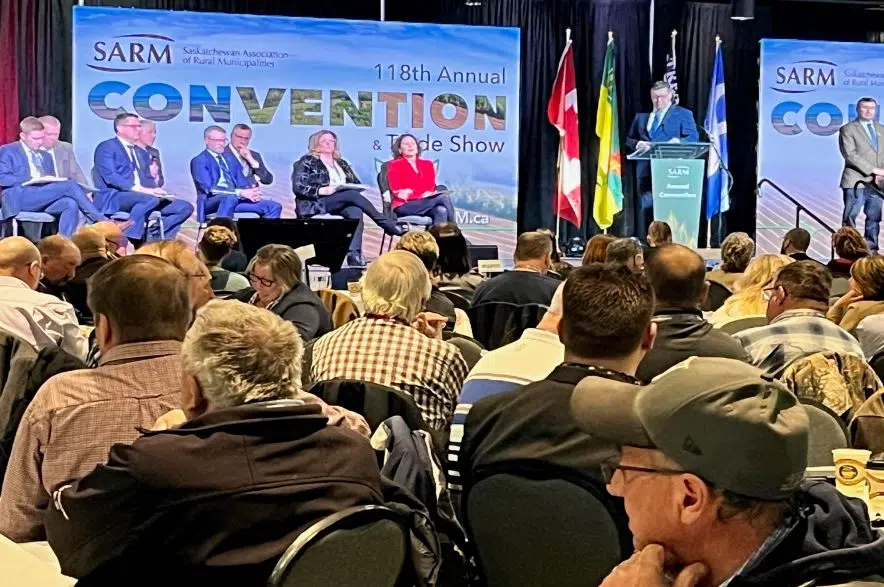A Saskatchewan program that has some contract nurses travelling to rural and remote communities came under scrutiny at the Saskatchewan Association of Rural Municipalities convention in Saskatoon.
During Wednesday’s “Bear Pit” question-and-answer session with provincial ministers, the RM of Glenside’s Kim Custer addressed Health Minister Paul Merriman and Rural and Remote Health Minister Everett Hindley.
“These travel nurses work along(side) the nurses that are already employed in Saskatchewan, making from $120 an hour to $150 an hour,” she said.
Custer also said some of those nurses were provided free accommodation for six weeks and a free rental vehicle.
“That’s not good for the morale of our own health-care workers,” she added. “I think we need to correct that.”
“Yes, we do have some contract travel nurses that we are utilizing in Saskatchewan,” Merriman replied. “It is a very small percentage of the overall nursing complement that we have within our province.”
Merriman said it wasn’t something the province wanted to do, but it had to do it to keep service disruptions in rural Saskatchewan to a minimum.
He did not clarify whether the nurses were contract nurses from Saskatchewan, or whether the nurses were brought in from other provinces, the U.S., or other countries. 650 CKOM has asked the Health Ministry for more information.
“There are over 10,000 nurses that are active in our province. In rural Saskatchewan, there’s right around 100 contract nurses,” Merriman said.
He said the money paid to the travel nurses is for the overall contract and there’s a recruiting fee. Not all of it goes into their pockets.
“We want to minimize this. We don’t want them there, but … if I pull out 100 nurses from rural Saskatchewan immediately, there’s going to be some service disruptions,” he explained, calling the travel nurses a temporary solution.
Merriman said 72 nurses convocated from Saskatchewan schools in December, and there was another group expected to graduate in April. There’s a $50,000 incentive for nurses to practise in rural and remote areas.
Hindley said more permanent, full-time positions were being created across the province.
“It was a very consistent message that we do have areas across this province where we have people that are interested, available and capable of working in these positions, but not if it’s a temporary or part-time positions,” he said.
Hindley added the changes would be made as quickly as possible.











